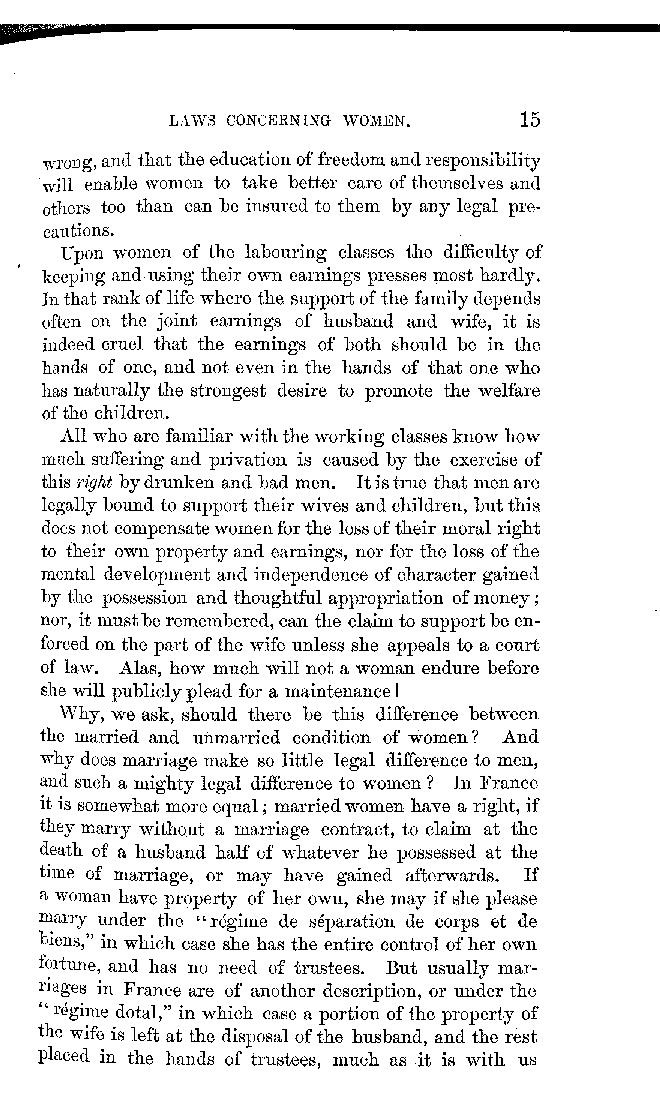wrong, and that the education of freedom and responsibility will enable women to take better care of themselves and others too than can be insured to them by any legal precautions.
Upon women of the labouring classes the difficulty of keeping and using their own earnings presses most hardly. In that rank of life where the support of the family depends often on the joint earnings of husband and wife, it is indeed cruel that the earnings of both should be in the hands of one, and not even in the hands of that one who has naturally the strongest desire to promote the welfare of the children.
All who are familiar with the working classes know how much suffering and privation is caused by the exercise of this right by drunken and bad men. It is true that men are legally bound to support their wives and children, but this does not compensate women for the loss of their moral right to their own property and earnings, nor for the loss of the mental development and independence of character gained by the possession and thoughtful appropriation of money; nor, it must be remembered, can the claim to support be enforced on the part of the wife unless she appeals to a court of law. Alas, how much will not a woman endure before she will publicly plead for a maintenance!
Why, we ask, should there be this difference between the married and unmarried condition of women? And why does marriage make so little legal difference to men, and such a mighty legal difference to women? In France it is somewhat more equal; married women have a right, if they marry without a marriage contract, to claim at the death of a husband half of whatever he possessed at the time of marriage, or may have gained afterwards. If a woman have property of her own, she may if she please marry under the "régime de séparation de corps et de biens," in which case she has the entire control of her own fortune, and has no need of trustees. But usually marriages in France are of another description, or under the "régime dotal," in which case a portion of the property of the wife is left at the disposal of the husband, and the rest placed in the hands of trustees, much as it is with us